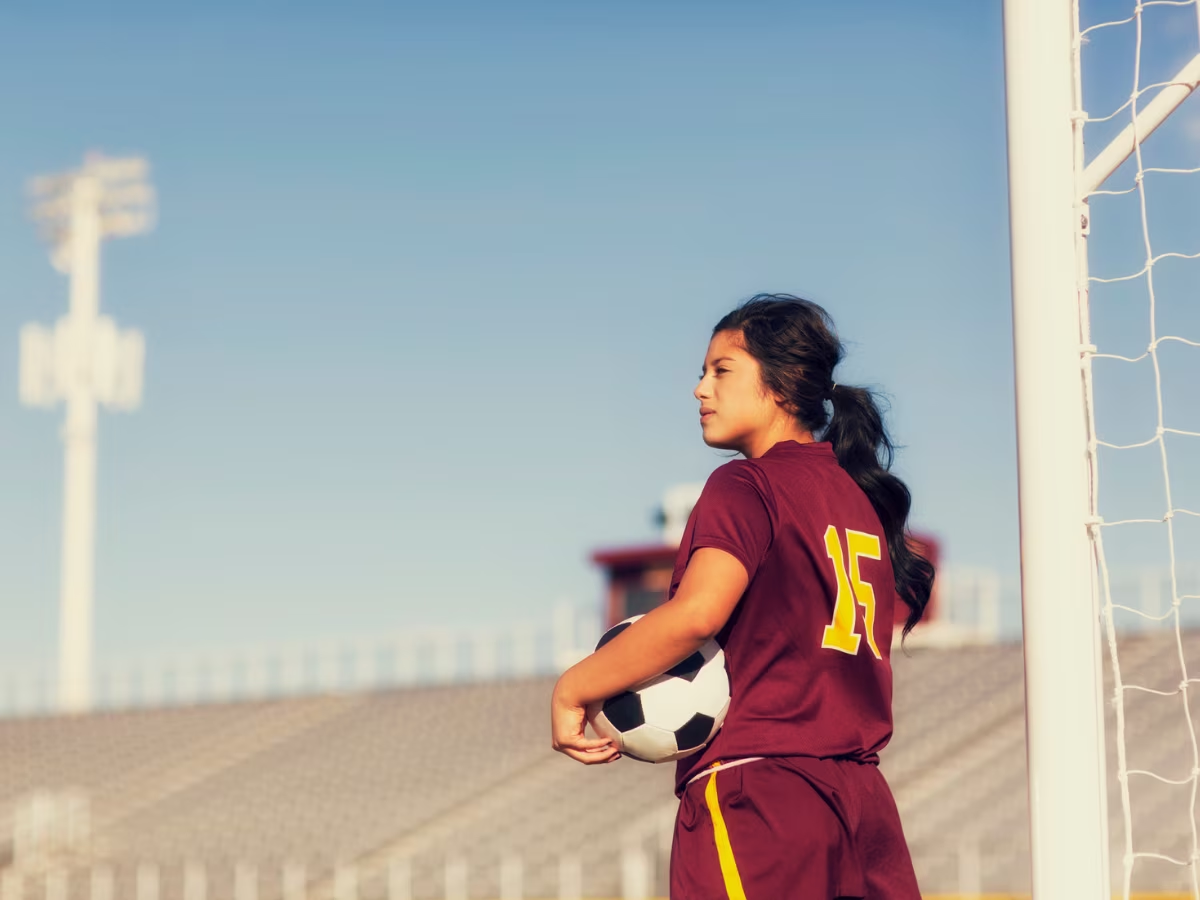The National Eating Disorders Association reports that a study of division 1 NCAA athletes revealed more than one-third of female athletes displayed symptoms and attitudes placing them at risk for anorexia nervosa. That doesn’t mean that male athletes face no risk. In fact, male and female athletes who are at elevated risk of developing eating disorders often participate in sports that emphasize the size of participants, including:
- Wrestling
- Bodybuilding
- Crew
- Running
For athletes, eating disorders are often driven by the compulsion to boost performance on the field, though, that certainly isn’t the only reason.
{{blog-button="/cta-buttons"}}
Why Athletes Are at Higher Risk for Eating Disorders
In addition to the belief some athletes have that losing weight will help them increase their performance, the common following risk factors for eating disorders in athletes raise the stakes for many athletes, creating heightened risks for developing eating disorders:
- Expectations to wear revealing athletic uniforms.
- Observing diets and eating practices of competitors and teammates.
- Observing exercise habits of competitors and teammates.
- Requirements to meet aggressive weight restrictions (especially in sports like gymnastics, wrestling, and diving).
- Participation in endurance sports.
- Achieving elite status as an athlete (or even the desire to do so).
- Irresponsible coaching, an unfortunate reality is that some coaches focus on performance and success rather than the development of the whole person.
It is often extremely difficult for young athletes to seek help for eating disorders. You train hard and believe that your diet and fitness regimen will help you improve your performance, so you can accomplish more in your field. It’s an admirable quality and part of the reason you’ve been so successful in your pursuits.
Common Eating Disorders in Athletes
The most common eating disorder in athletes is anorexia nervosa, though many athletes also experience bulimia nervosa and compulsive exercising as well.
Getting help to overcome an eating disorder shows a new commitment to excellence and strength. Despite efforts to boost performance through extreme dieting and exercising, many athletes experience diminished performance instead through dehydration, muscle injuries, glycogen depletion, hormonal disruption, and increased risks of injuries related to depleted bone density.
Where Can You Turn for Help Overcoming Eating Disorders in Athletes?
Eating disorder treatment for athletes allows elite performers to receive the highest level of medical and psychiatric care outside of a hospital so you can become fully recovered in a homelike setting.
In addition to dedicated professionals, some of whom have walked (run, etc.) a mile or two in your shoes, you will experience comprehensive academic and family support as you go through your treatment program. Athletes and eating disorders do not have to go hand in hand. You can find your path to your healthy self through a treatment program that encourages you to feel your feelings and challenge your thoughts.
As an athlete, you are always striving to accomplish new goals, raise your standards, and surpass expectations. The professionals caring for you at Monte Nido expect no less from you. They will challenge the way you think while tending to your soul. They will offer truth, even when truth is difficult to hear, without judgment.
It’s not only your body that needs to heal from an eating disorder. Your mind and spirit require healing as well. Working with a treatment center that operates under a human beings first, therapists second philosophy means you’re working with real people who are empathetic and gentle in their treatment of your condition, when the occasion calls for it, yet honest enough to provide a little nudge in the right direction when that is needed as well.
A Different Approach to Supporting Athletes and Eating Disorder Recovery
At Monte Nido, we understand the unique challenges young women face today with social media, socialization, and other contributing factors for developing eating disorders.
We also understand the unique challenges when it comes to athletes and eating disorders. Our purpose is to help you find your way back to your healthy self, so you can tell your eating disorder self goodbye for good. Whether you’re dealing with anorexia nervosa or any other eating disorder, we believe we can help you embrace your fully recovered self without sacrificing athletic performance or your good health.
Monte Nido is unique, offering highly individualized treatment plans for treating eating disorders common among athletes. We create an eating disorder treatment for athletes based on each patient’s individual and unique experience according to the sport she participates in, the specific eating disorder she is living with, contributing factors that may exacerbate her condition, and co-occurring conditions that may impact healing, treatment, or long-term recovery.
Contact us today to learn more about starting your recovery journey.
{{blog-button="/cta-buttons"}}



.svg)

.png)
.png)
.png)